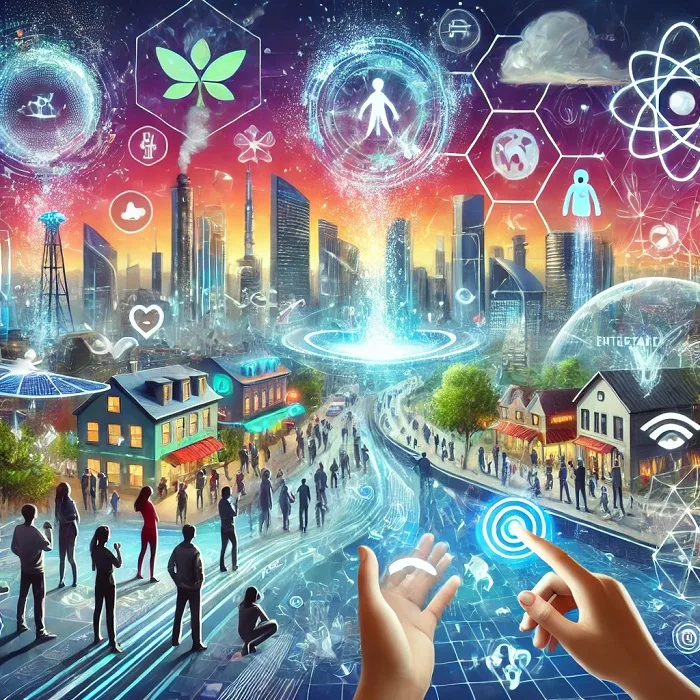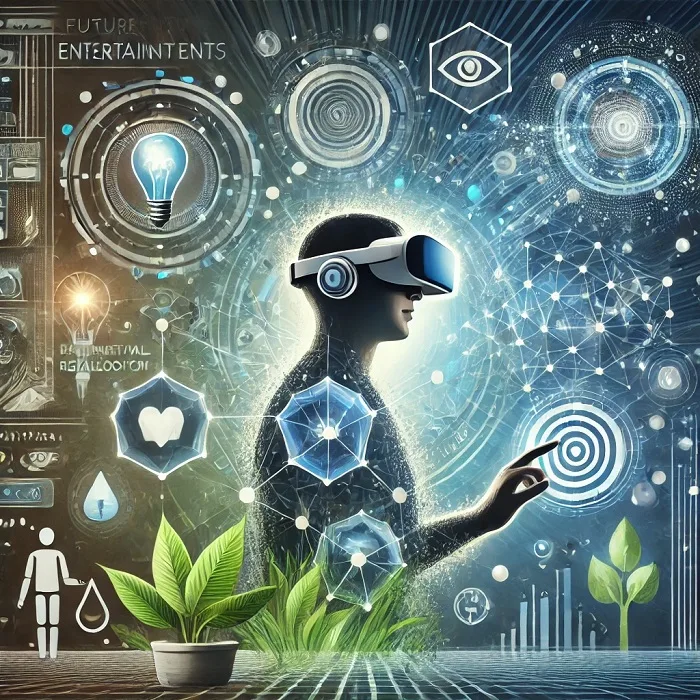
As we look toward the future, the entertainment industry is gearing up for transformative trends in 2025. From innovative technology integration to shifts in audience preferences, this article explores the anticipated trends that will shape the industry, delving into major advancements and what they mean for creators and consumers alike. These changes are not only about providing new experiences but also about addressing the growing demand for more personalized and sustainable entertainment options.
Technology-Driven Experiences
The integration of advanced technology continues to redefine entertainment. In recent years, the focus has been on enhancing user engagement through interactivity, and this trend is expected to intensify in 2025. The next wave of technology will make it possible for audiences to become part of the story, with augmented reality (AR) and virtual reality (VR) offering truly immersive, interactive experiences. These advancements are more than just novelties—they represent a shift toward creating an entertainment environment where the audience is not a passive observer but an active participant.
This shift towards immersive technology is also changing the landscape for creators. With AR and VR, content creators can now explore new forms of storytelling that engage multiple senses and place audiences directly in the heart of the action. As the technology becomes more accessible and affordable, more companies are expected to invest in developing AR and VR content, bringing these experiences to a broader audience. The entertainment sector is entering an exciting era where virtual worlds and augmented experiences are becoming central to how stories are told.
Augmented and Virtual Reality in Entertainment
AR and VR are no longer confined to experimental stages—they are becoming foundational tools in entertainment. By allowing users to enter alternate worlds, interact with virtual characters, and experience narratives from entirely new perspectives, these technologies are transforming how audiences consume media. The gaming industry, in particular, has been at the forefront of this movement, with VR headsets and AR applications offering deeply immersive gameplay. Movies, concerts, and other live events are also exploring VR as a way to bring experiences to viewers remotely, enhancing accessibility while maintaining high engagement levels.
Moreover, as AR and VR technologies improve, we can expect higher-quality graphics, smoother interactions, and more believable environments. This immersive tech is likely to spill over into sectors beyond gaming and movies, including education, tourism, and even wellness, as consumers seek more engaging and personalized experiences. By 2025, virtual and augmented experiences may become an essential part of entertainment, blurring the lines between the digital and physical worlds.
Personalized Content and AI Recommendations
As the digital landscape expands, personalized content delivery has become a central trend. In 2025, artificial intelligence (AI) is expected to play an even more prominent role in shaping entertainment by delivering highly personalized experiences based on user behaviour and preferences. This trend goes beyond simple recommendations, extending into a new era where AI curates content specifically tailored to individual tastes, creating a sense of exclusivity and connection for each viewer. With more users expecting content to fit their unique interests, AI is proving invaluable in meeting this demand.
The shift toward personalized experiences is not just a boon for consumers but also for entertainment providers. By leveraging AI-driven algorithms, companies can better understand their audiences, refine their offerings, and increase engagement. This advanced level of personalization is already evident in the success of streaming services, which employ sophisticated AI systems to analyze viewing patterns and suggest relevant content. As these algorithms improve, they can predict what a user might want to watch or listen to, offering an almost intuitive content selection that enhances the overall user experience.
AI-Enhanced User Experiences
AI-enhanced recommendations are quickly becoming the standard across media platforms. These algorithms have the unique ability to identify and adapt to changes in user preferences, ensuring that content remains fresh and engaging. Beyond movies and TV shows, this personalization extends to gaming, social media, and even news outlets, where AI is increasingly used to cater content to specific interests and habits. This tailored approach not only increases user satisfaction but also builds loyalty by consistently providing content that resonates on a personal level.
By 2025, AI-driven personalization is expected to expand further, with algorithms becoming more adept at understanding even nuanced preferences. As users spend more time on these platforms, AI will gather richer data, allowing for more accurate and context-sensitive recommendations. This trend points to a future where entertainment consumption feels increasingly customized, helping audiences discover content that feels tailor-made for them, enhancing their connection to the platform.

Sustainable and Ethical Entertainment
In response to growing awareness about environmental and social issues, the entertainment industry is making a conscious shift toward more sustainable and ethically produced content. Consumers today are not only looking for entertainment that excites them but also for content that aligns with their values. This trend towards eco-consciousness is reshaping how entertainment companies operate, from the production processes they adopt to the stories they choose to tell. By 2025, sustainability is expected to be a core consideration for every major entertainment provider.
This push towards sustainability is also driven by the increased demand for transparency in how content is produced. Audiences want to know that their favourite shows, games, or events are created responsibly, with minimal impact on the environment. As a result, companies are adopting eco-friendly practices, such as reducing waste, using energy-efficient equipment, and collaborating with green-certified suppliers. This not only helps reduce the industry’s environmental footprint but also resonates with viewers who prefer to support brands that are socially and environmentally conscious.
Eco-Friendly Production Practices
Eco-friendly production practices are becoming a significant part of the entertainment industry’s sustainability strategy. From using renewable energy sources on set to minimizing travel and waste, companies are actively looking for ways to lessen their impact on the environment. In the film industry, for example, initiatives are being implemented to recycle props and set materials, limit plastic use, and employ virtual effects instead of physical props to cut down on resources. This approach extends to music and live events, where sustainable practices include reducing energy consumption, encouraging recycling, and partnering with local suppliers to minimize carbon footprints.
As more companies adopt these practices, eco-friendly production is expected to become a standard in the industry, with potential regulatory support to encourage greener operations. By 2025, these efforts could pave the way for a more responsible entertainment landscape, where ethical considerations are not just a trend but a lasting commitment. This shift aligns with broader societal expectations and highlights the industry’s role in advocating for environmental and social responsibility.